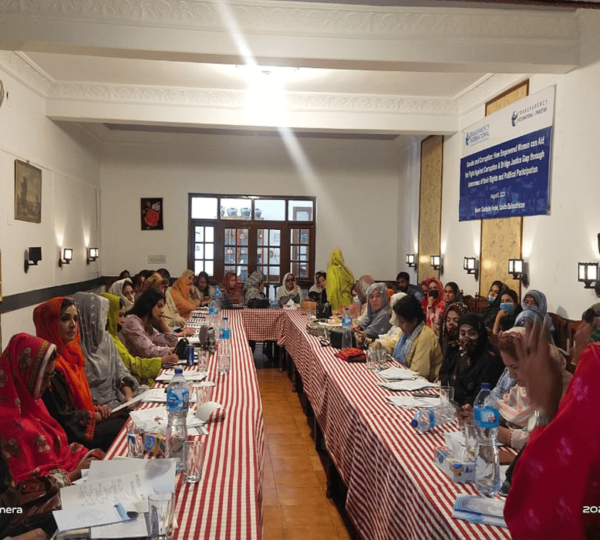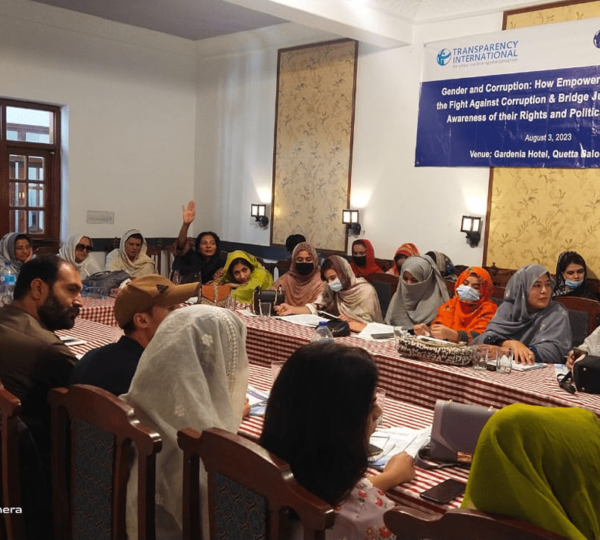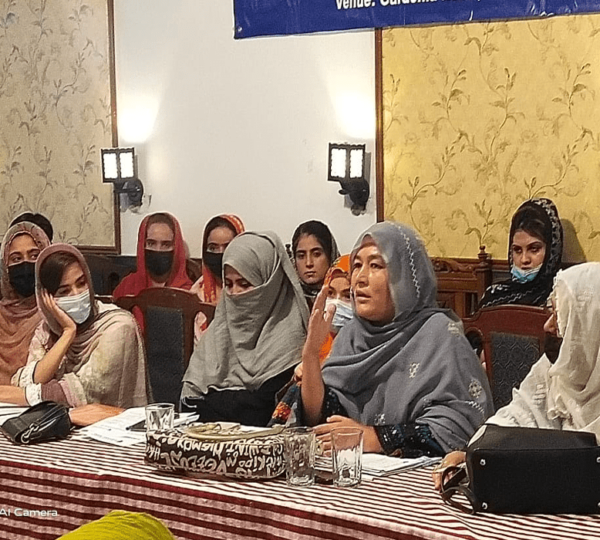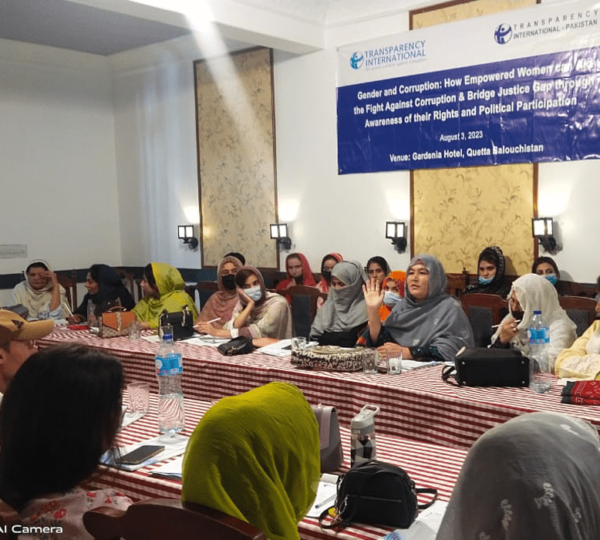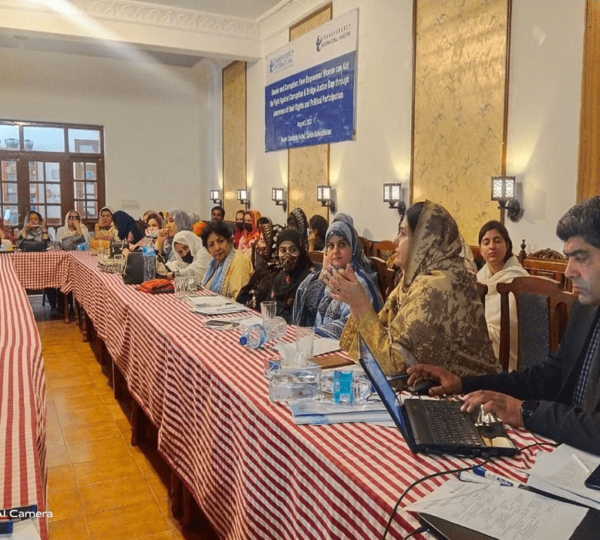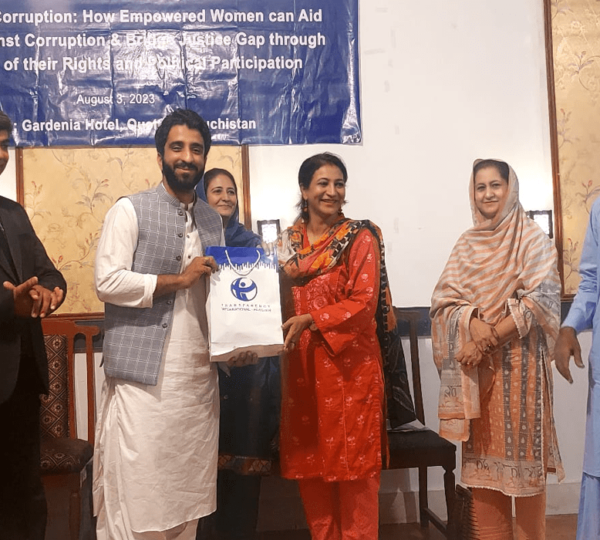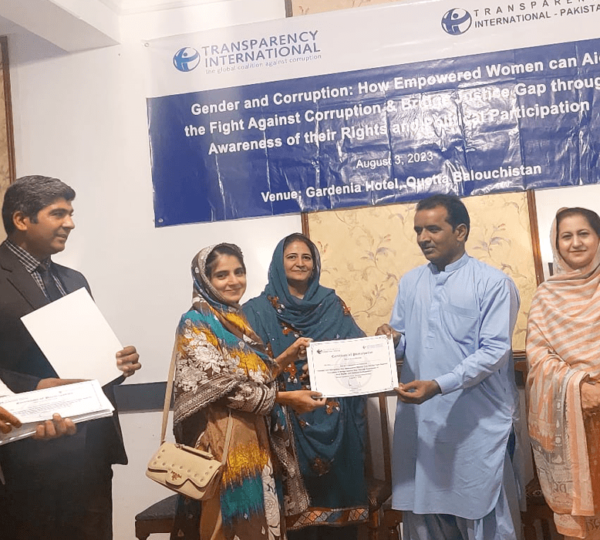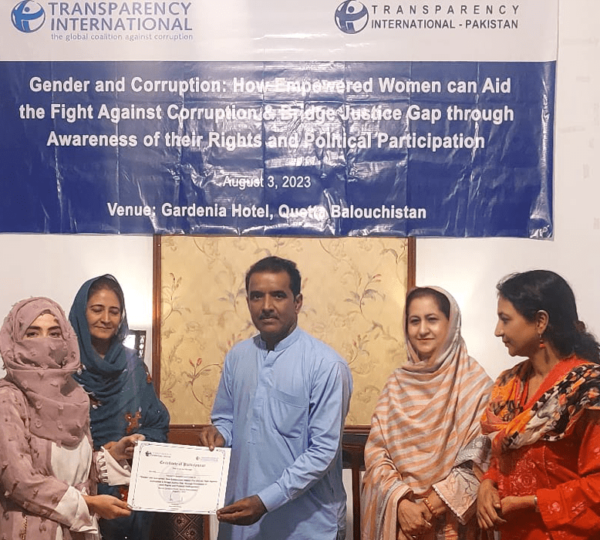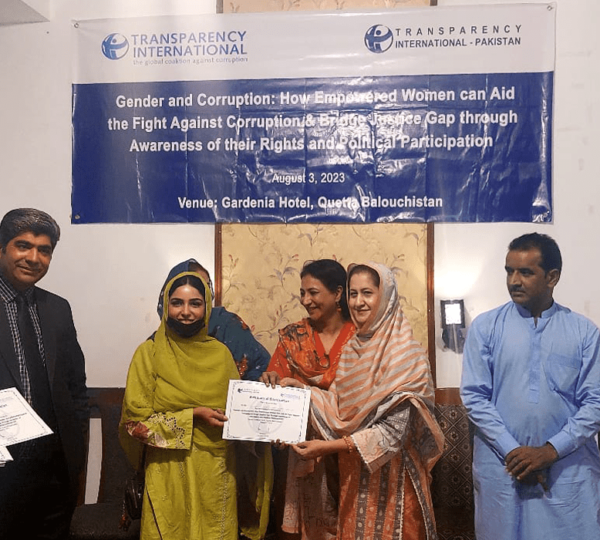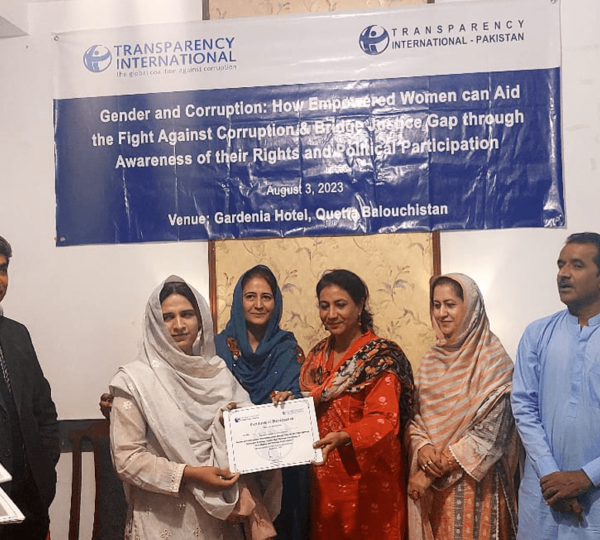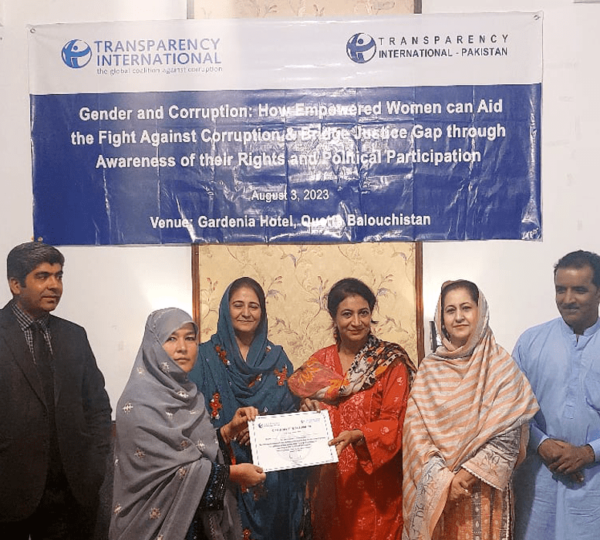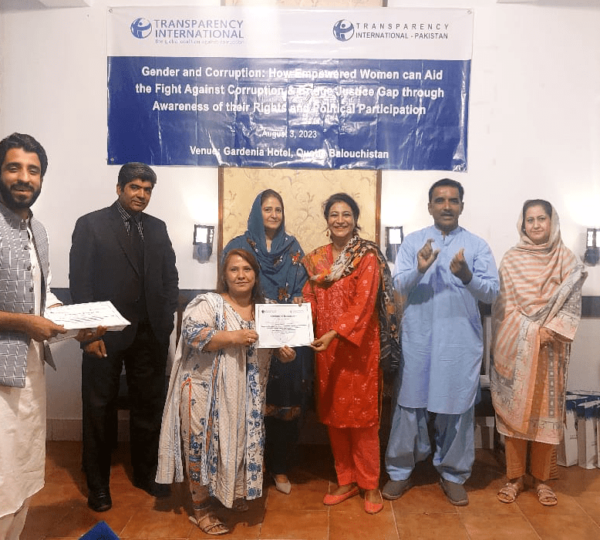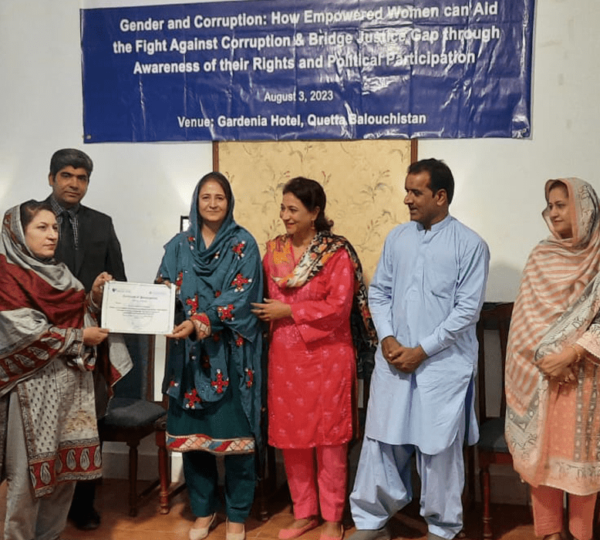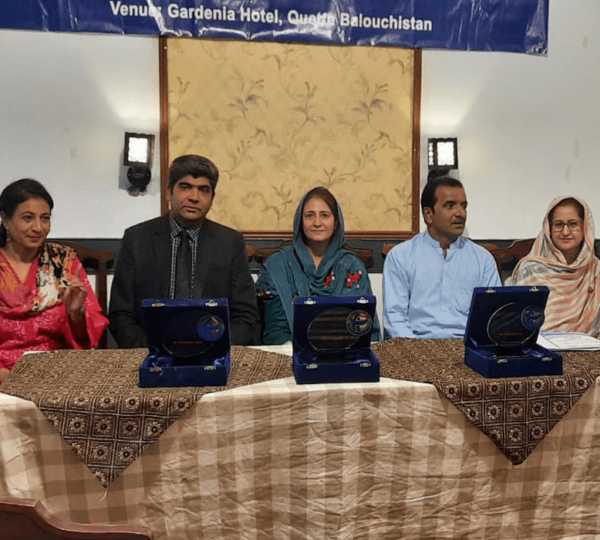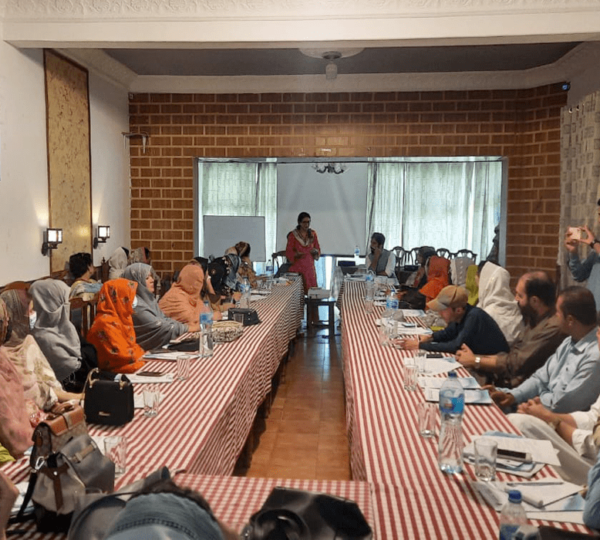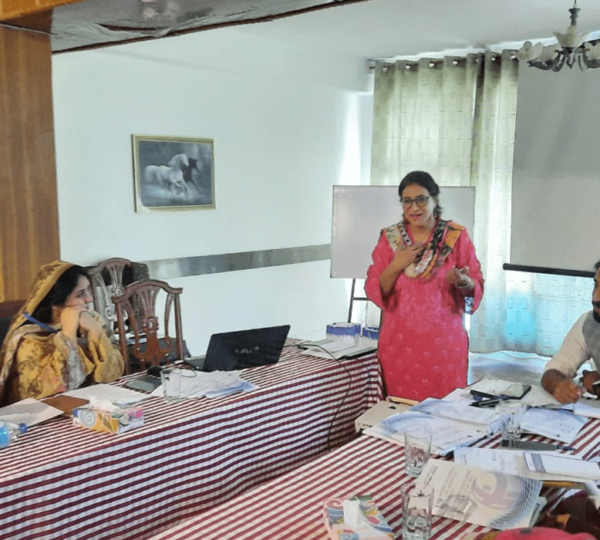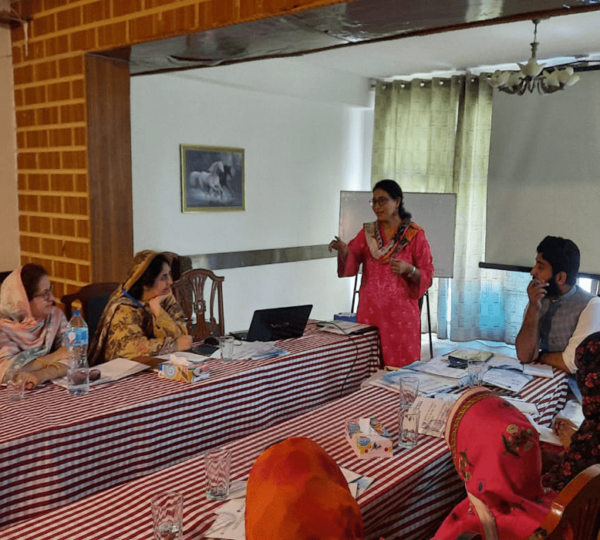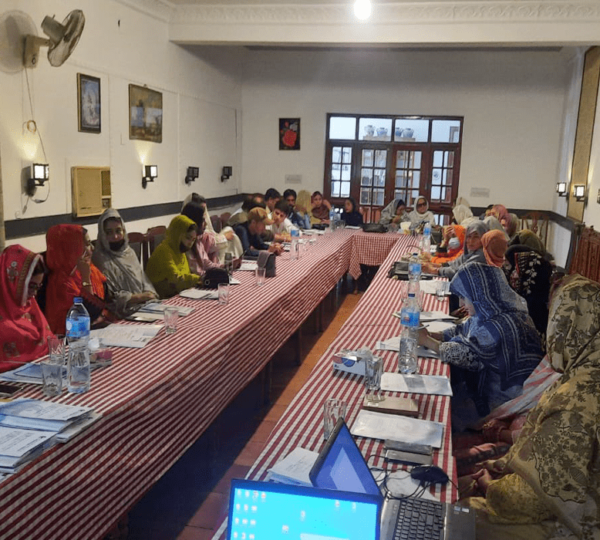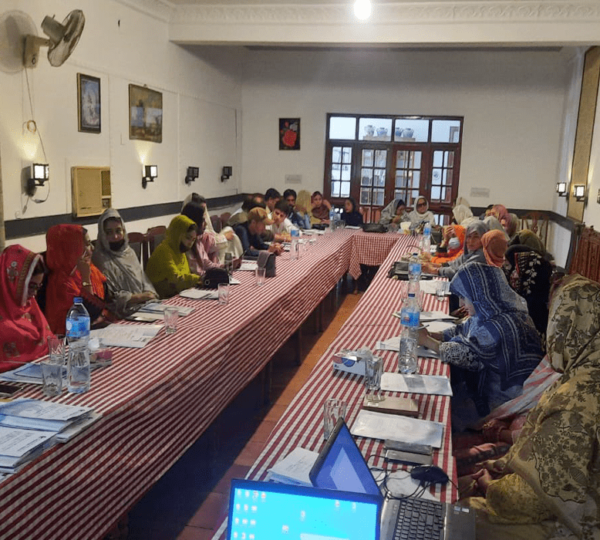- Home
- Workshop: Gender and Corruption: How Empowered Women Can Aid the Fight Against Corruption & Bridge Justice Gap Through Awareness of their Rights and Political Participation
Workshop: Gender and Corruption: How Empowered Women Can Aid the Fight Against Corruption & Bridge Justice Gap Through Awareness of their Rights and Political Participation
Workshop: Gender and Corruption: How Empowered Women Can Aid the Fight Against Corruption & Bridge Justice Gap Through Awareness of their Rights and Political Participation
Venue: Gardenia Hotel Quetta
Date and Day: Thursday, August 3, 2023
Transparency International Pakistan organized a One-Day training workshop on Gender and Corruption” How Empowered Women Can Aid the Fight against Corruption & Bridge Justice Gap through Awareness of their Rights and Political Participation in Quetta on August 3, 2023. The objective of the workshop was to promote awareness about the gender and corruption, and to raise awareness about women’s rights and encourage their active participation in political decision making.
Around 60 participants representing Civil Society Organizations (CSOs), journalists, lawyers working on the Right to Information, Transgenders, People with Disability, Members of Political Parties, District Govt, Members of National Commission on Status of Women and Gender and Women Development Dept., and young professors of University of Baluchistan attended the workshop.
The workshop started with the recitation of the verses from the Holy Quran. After the introduction of the participants, Ms. Nasreen Memon, Gender Resource Person, TI Pakistan welcomed the participants and shared the objectives of the workshop. She explained the types of corruption encountered by women and the gender specific forms of corruption and their disparate effects on women. She highlighted that the corruption impacts the marginalized and the poor population, restricting women’s participation in public, economic and political life and limiting their influence over decision-making. She also discussed that the deep-rooted power disproportionateness between men and women produced by gender and the social roles that make women more exposed to abuse of power, can expose them to higher risk of falling victim to corruption.
Further she emphasized that gender power differential, fueled by historic pattern of discrimination, can encourage discriminatory behavior that targets women for coercive corruption and other forms of exploitation. As a result of social norms, women are frequently more exposed to higher corruption risks.
Afterwards, Mr. Abdul Hayee Baloch, Advocate High Court Quetta briefed that the Baluchistan Right to Information Act 2021 was passed by the provincial assembly on February 1, 2021, and received the assent of the governor of Baluchistan on February 15, 2021. The Act mandates the Baluchistan government to appoint members of the Information Commission within 180 days of the commencement of the Act under Section 18(1).
He shared that, despite this legal obligation, it has been more than two years since the passage of this Act, and members of the Commission have not been appointed. This delay is a violation of the law and undermines the purpose of the Baluchistan Right to Information Act 2021. He further emphasized that journalists and Youth can use RTI laws for investigative journalism, citing several examples of news stories through which journalists have highlighted issues to improve public service delivery at the grassroots level. In conclusion, he emphasized that every citizen should file an RTI Request to expose corrupt practices and improve public service delivery.
The participants were divided into 4 groups and were given RTI brochure of TI Pakistan to enhance their understanding of the act and prepare RTI requests to the concern Depts. Applications were prepared addressed to the Education Dept. Health Dept. Municipal Services, Revenue Department, Planning and Development, and Women Development Departments.
Moving on, the next speaker was Ms. Sana Durrani, Member National Commission on the Status of Women (NCSW), Government of Balochistan. She motivated the female participants with her own remarkable journey of being elected as the member of NCSW Quetta. She shared that her family encouraged her to join politics and she has focused on empowering women political participation. She highlighted that her voice serves as a powerful advocate against gender biases and disparities, resonating with the cause of equality and empowerment.
Further, she encouraged other women to come forward to take part in community service, volunteering and participate in political process to make their voices heard. Additionally, she talked about the election processes, including how to register as a voter, how to access and check voter lists, and the procedure for lodging complaints. Her insightful session enhanced the participants’ understanding and capacity to engage effectively in the electoral process.
She also explained procedure of CNIC registration like need for birth certificate, matriculation certificate or CNIC of immediate blood relatives. It is important that Pakistan’s elections remain free and fair. This can only be the case if all people – including women – are able to participate in the electoral process safely and fully. The Election Commission of Pakistan (ECP) plays a key role in ensuring electoral security, including the safety and security of women electoral stakeholders, and protecting democratic integrity. Within this context, the ECP acts against any violations of the Elections Act 2017 and the electoral code of conduct. Police also have the authority to address any law-and-order violations or offences committed during the elections. Therefore, any complaint against violence against women during elections can be registered with the police, ECP and in case of online violence/harassment, the complaint can be registered with the Federal Investigation Agency (FIA) under Prevention of Electronic Crimes Act, 2016.
Ms. Asifa Khan, Trainer at SEHAR Organization shared her field experience and highlighted that every day, women are confronted by discrimination and gender inequality. They face violence, abuse and unequal treatment at home, at work and in their wider communities and are denied opportunities to learn, to earn and to lead. Women form the majority of those living in poverty.
Moving on, Ms. Riffat Pervez, Women Activist expressed her apprehension that she is continuously working on the mission for empowering women and girls who are facing political, economic, and social inequality. She emphasized that we all must deeply see and work on the root causes of gender inequality including addressing the higher level of poverty, lack of access to basic services and higher underrepresentation of women in the leadership and decision-making positions.
In the end of session, Ms. Nasreen Memon Gender Resource Person TI-P, advised to women participants to take legal advice from women-based organization, women development dept. and National Commission on the Status of Women and the Advocacy and Legal Advice Centre, established by TI Pakistan. The Contact list of women-based organizations was shared with all the participants.


